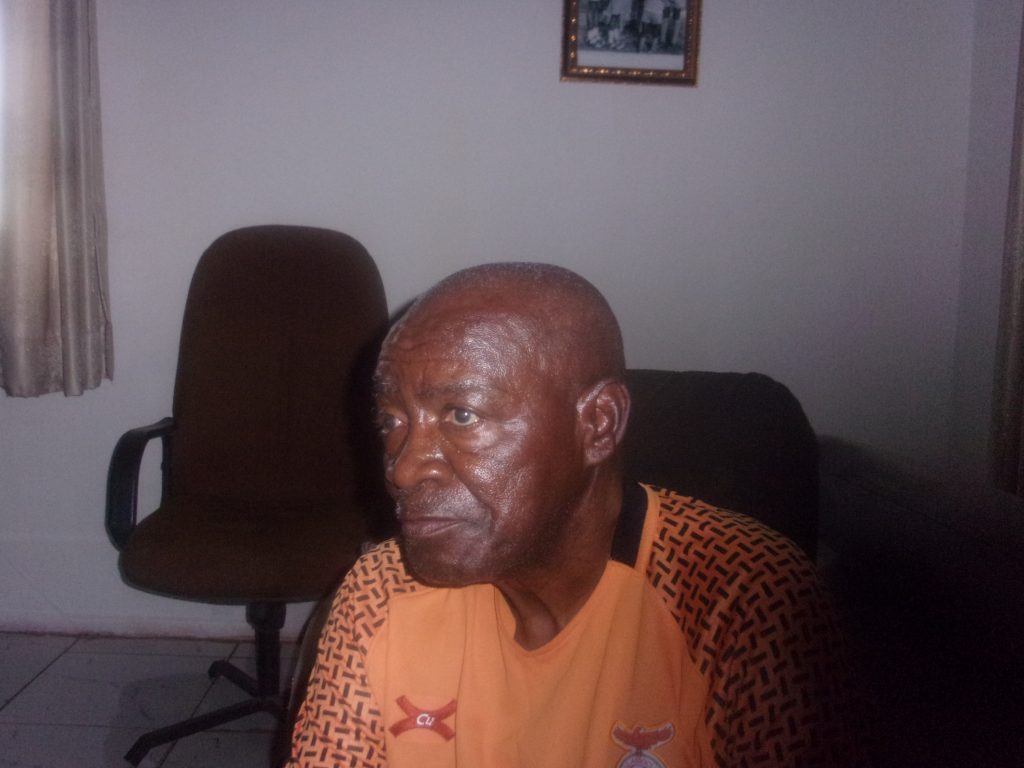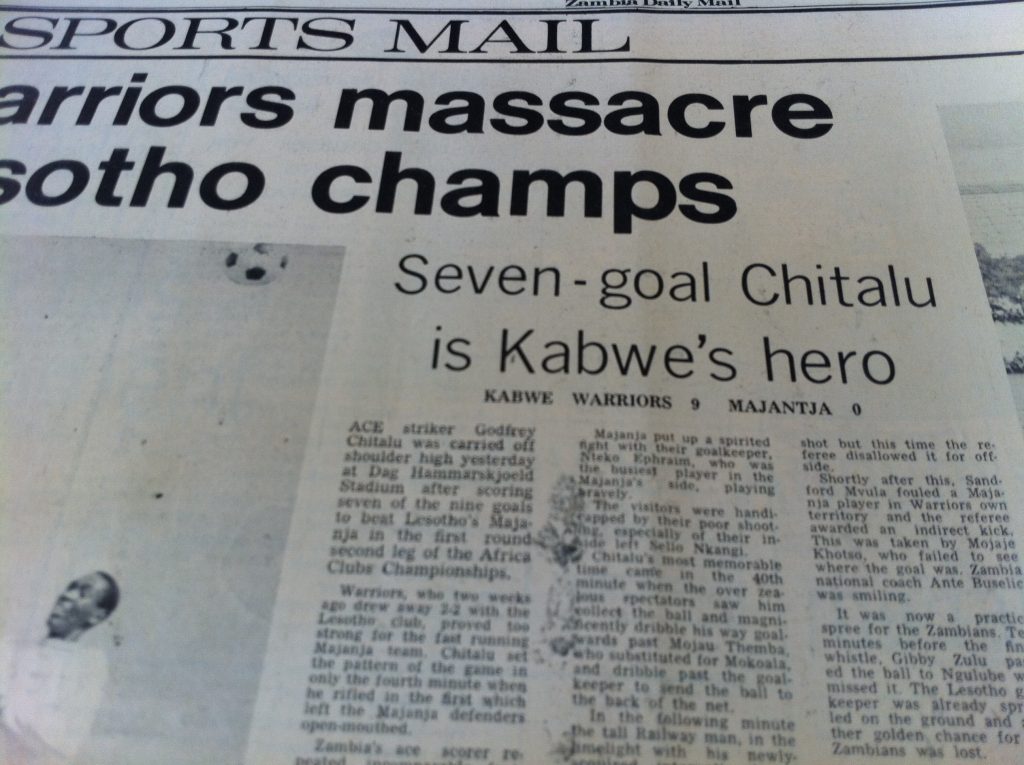Africa’s Undisputed Goal King (Part Eight) – Astonishing

Africa’s Undisputed Goal King (Part Seven) – The Record Holder
October 16, 2020
Africa’s Undisputed Goal King (Part Eleven) Different Strokes
October 16, 2020Africa’s Undisputed Goal King (Part Eight) – Astonishing

By Satish Sekar © Satish Sekar (May 5th 2020)
The Champion
Zambia’s Goal King Godfrey Chitalu had an exceptional year in 1972. He broke two of his own World Records, although neither were acknowledged until they had been broken.
In 1968 Chitalu broke Pelé’s decade-long records. The great Brasilian had capped of his first World-Cup winning year by setting the singe-season and calendar-year goal-scoring record at 75.
Chitalu, then playing for Kitwe United, had netted 81 goals in 1968. On his international debut against Uganda on June 29th 1968, aged 20, Chitalu failed to score in the 2-2 draw in Lusaka. He made up for the disappointment in his second match, scoring both of Zambia’s goals in another 2-2 draw against Uganda, but at the Scrivener Stadium in Kitwe. In just six months Chitalu had scored 12 times for Zambia. He had only played ten internationals.
These were the first of 79 goals that Chitalu was credited as scoring for Zambia. That is an African record – one that places him in the top five scorers in international football.
Chitalu’s Assault on History
1968 was a memorable year for the man who would become Africa’s Goal King as well. 1972 would be even more memorable. He scored 107 goals in the Zambian season, a total that included two goals for Zambia. They came in the return leg of the World Cup qualifier against Lesotho in Ndola on June 4th 1972. Zambia won 6-1 on aggregate – Fred Mwila Snr scored a hat-trick. The first leg had ended 0-0 in Maseru two months earlier.

Chitalu’s season tally of 107 is a World Record,[1] but it doesn’t tell the whole story of Chitalu’s remarkable year. He began his assault on history by setting African Cup of Champions Clubs records for a match and for a tie at 7 and 9 respectively. Over 48 years later, Chitalu’s feat in champions’ clubs competitions has not been acknowledged by the Confédération Africaine de Football (CAF), even though these are CAF’s records.
Chitalu set these records before the Zambian season began and Zambian football credited the 107 season tally as the record from an early stage. This was an error by FAZ decades ago. They rightly do not count in the season total, but as they were scored within the calendar year of 1972, they must count in the calendar year total. These goals – two African Cup of Champions Clubs records – have not been credited as CAF records nor have they been included in the calendar year tally.

CAF should begin the process of putting the injustice done to Chitalu right by acknowledging the African records that he set in 1972. That would mean that he set two World Records that year, unless anyone knows better.
Godfrey Chitalu dominated Zambian sports awards. In 1972 despite missing that edition of the African Cup of Nations (AFCON), he had an absolutely phenomenal year.
Although Zaire eliminated Zambia’s KK11 and the Republic of Congo beat Mali 3-2 to claim their only title, Chitalu’s calendar year was exceptional to put it mildly. There’s no denying that the Zambian icon had had an absolutely phenomenal year. Chitalu set two continental champions clubs scoring records, one that has never been equalled, let alone surpassed, and two World records as well as winning all five domestic trophies on offer with Kabwe Warriors. Unless anyone knows better, this is the most phenomenal year any top flight footballer has ever had and it must be properly acknowledged.
[1] The Federation of International Football Associations (FIFA) refused to acknowledge Chitalu’s totals for both the season and calendar year, claiming that it did not keep such records. This is a tad disingenuous. Previous record holders were never subjected to having to provide proof or this claim after proving the bona fides of the totals. These issues will be considered in detail in future articles.

